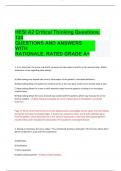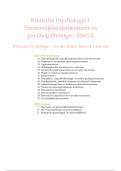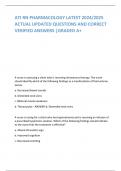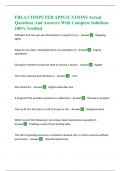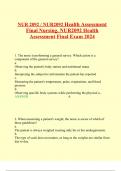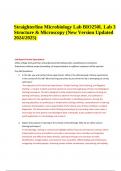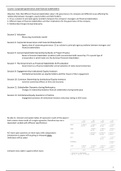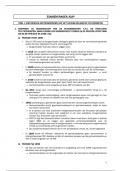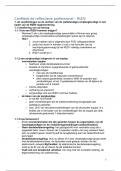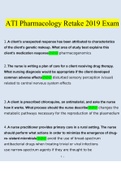Examen
HESI A2 Critical Thinking Questions. 124 QUESTIONS AND ANSWERS WITH RATIONALE. RATED GRADE A+
- Grado
- Institución
HESI A2 Critical Thinking Questions. 124 QUESTIONS AND ANSWERS WITH RATIONALE. RATED GRADE A+ 1. In an interview, the nurse may find it necessary to take notes to aid his or her memory later. Which statement is true regarding note-taking? A) Note-taking may impede the nurse's observa...
[Mostrar más]
